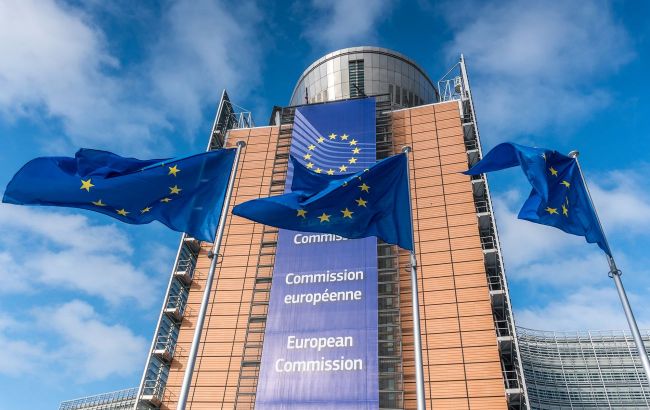European Commission wants Ukraine to join EU defense industry support scheme
 European Commission wants Ukraine to join EU defense industry support scheme (Getty Images)
European Commission wants Ukraine to join EU defense industry support scheme (Getty Images)
Ukraine's bid to become a full-fledged member of the EU's defense industry support scheme is poised to not only harness the nation's expertise but also propel Kyiv closer to membership aspirations. This proposal project has been put forth by the European Commission, according to Euractiv.
One of the three objectives of the European Defence Industrial Programme (EDIP) proposal is to facilitate the recovery, reconstruction, and modernization of Ukraine's defense technological and industrial base while fostering progressive integration with Europe. This move aims to bolster mutual stability, security, peace, prosperity, and resilience.
To achieve this, Ukraine would be granted full membership status in any consortium for joint military equipment procurement alongside other EU member states, gaining access to EU funds and VAT exemption for joint ownership.
The regulation for the European Defence Industrial Programme will be presented by the European Commission on Tuesday alongside a comprehensive EU defense policy strategy.
"The integration of Ukraine in the EU industry policy in the draft law text goes one step further than mentioning the idea in the political ‘Strategy’, where it could easily be forgotten," Euroactiv notes.
Thus, Ukraine will occupy a special place in the program supporting European joint arms procurement and strengthening the military-industrial complex of the bloc through EU funds.
Prior EU defense-industrial programs, enacted by EU legislators, have never considered any third country as a legitimate full participant in these schemes except for Norway.
Significant step
Ukraine's accession to the European Defence Industrial Programme would be a significant stride in shaping the continent's military-industrial complex, considering Kyiv's experience in utilizing defense technology over the past two years and its process of EU accession.
Given Ukraine's substantial demand for defense products, particularly ammunition and drones, Kyiv has collaborated with EU member state companies on establishing joint ventures, direct procurement from bloc enterprises, and developing large-scale drone production capacities. Two years of war have also provided the military with experience in testing and deploying modern weaponry.
According to the draft resolution, supporting the recovery, reconstruction, and modernization of Ukraine's defense technological and industrial base is a means of bolstering the EU's defense capabilities and those of its member states.
Outside the EU, the bloc's industry faces challenges in ramping up production awaiting contracts after decades of insufficient investment following the Cold War.
Specific budget for Ukrainian military-industrial complex (MIC)
"Faced with a high-intensity conflict, the Ukrainian defense and technological, industrial base had to shift to a war economy model," says the defense strategy draft.
Cooperation of the Ukrainian industry with the European one is a key aspect of the security commitments that the EU diplomatic service has discussed and proposed to Ukraine in an attempt to ensure that the bloc's industry increases production volumes to support military efforts.
"Ukraine is and will increasingly be a crucial partner in the Union in the defense industrial sector, notably given its full accession process," the unpublished defense strategy text reads.
The text draft also includes a specific budget for the Ukrainian military-industrial complex. While the document does not specify a total financial package, it is anticipated that its budget will amount to at least 1.5 billion euros.
Ukraine's and EU's defense industries
Oleksandr Kamyshin, Minister for Strategic Industries, recently announced that Ukraine's defense industry grew sixfold in 2023, with over half of these capabilities already contracted.
EU Internal Market Commissioner Thierry Breton said that Europe must transition to a wartime economy mode and produce weapons faster and in greater quantities as part of the new defense-industrial strategy.

